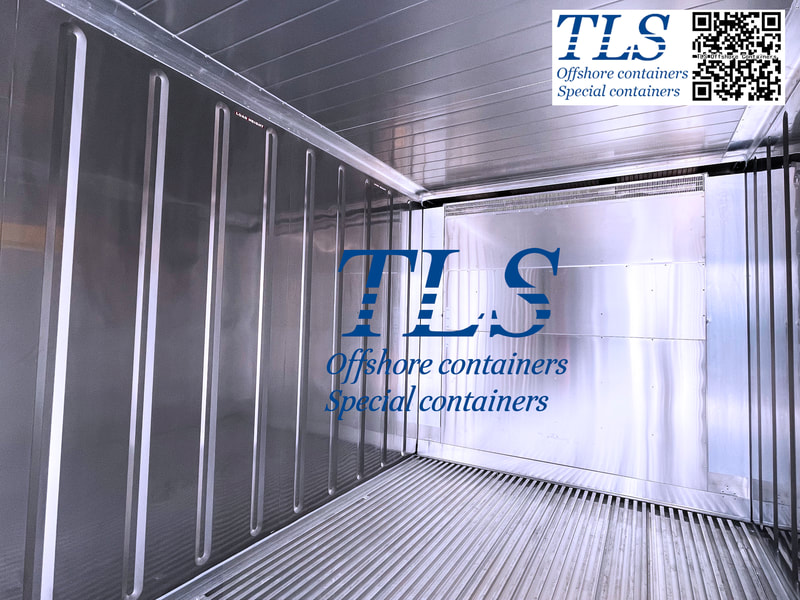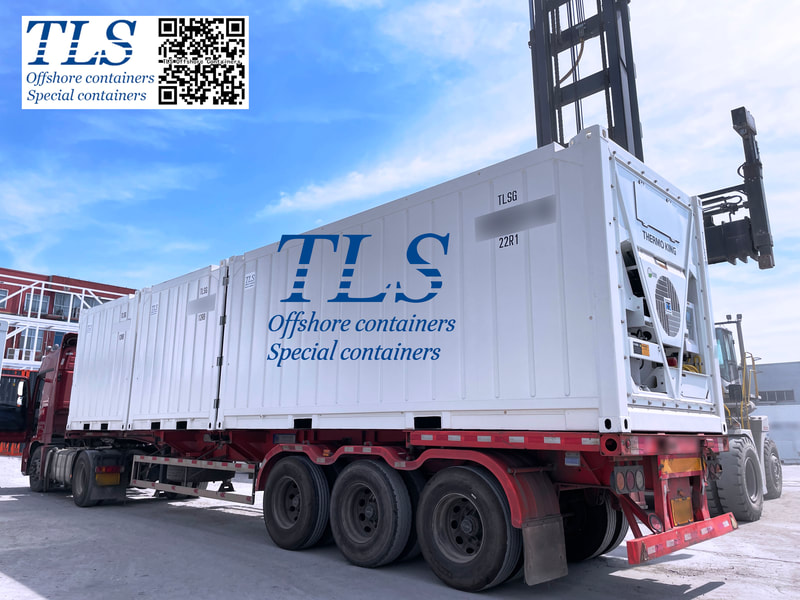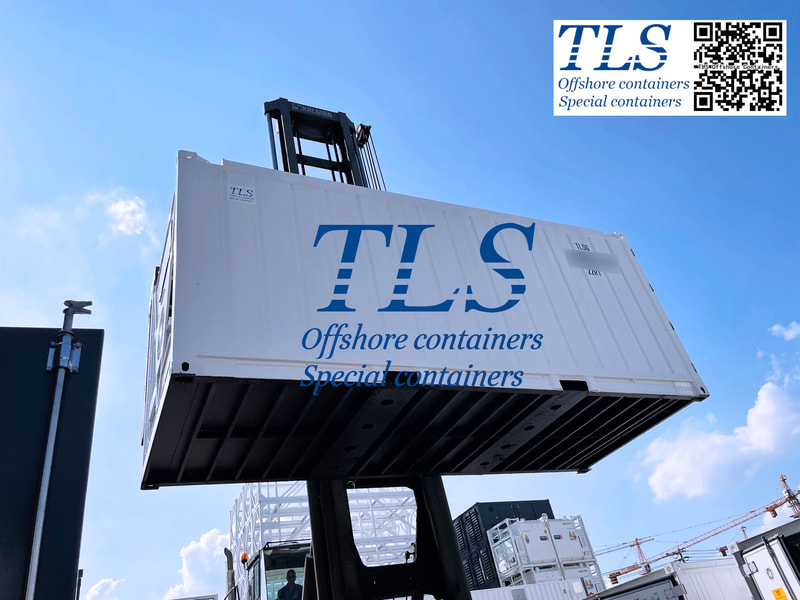|
Refrigerated containers, also known as refrigerated shipping containers, freezer containers, 20-foot refrigerated containers, or specialized refrigerated containers, are special containers designed for the transportation and storage of frozen and perishable goods during maritime shipping. They play a crucial role in transporting and preserving vegetables, fruits, meats, and other perishable items, ensuring that the goods remain fresh at specific low temperatures. The greatest advantage of refrigerated containers used in maritime shipping lies in their excellent insulation and high mechanical strength. Polyurethane foam is commonly used in the industry to ensure effective insulation. When the density of polyurethane foam is 40 kg/m3, it provides the lowest thermal conductivity. In practical production, the density is slightly higher than 40 kg/m3 to ensure strength, minimize voids, and account for factors such as leakage during foaming. The wall thickness of maritime refrigerated containers generally ranges from 50 to 120 mm, while for specialized applications, it can be reduced to 30 mm. Choosing the right refrigerated container is of paramount importance, especially for transporting perishable goods and temperature-sensitive medications. To ensure successful delivery of frozen products, the following factors are crucial: uninterrupted cold chain transportation, appropriate cooling technology, and selecting the correct insulation materials, dimensions, and container designs. Different products have varying temperature requirements, making it essential to understand the temperature requirements for each product along the transportation route when selecting a maritime refrigerated container. For example, blood needs to be stored between 2-6°C, vaccines must be maintained between -70°C and -5°C, and frozen foods need to be kept at -18°C. Refrigerated containers play a vital role in global trade, meeting the transportation needs of various frozen goods while ensuring product quality and safety. Through scientific and rational design and usage, refrigerated containers provide convenience and assurance, promoting the development of the food and pharmaceutical industries. In conclusion, refrigerated containers are indispensable tools for transporting frozen and perishable goods via maritime shipping. With their exceptional insulation properties and mechanical strength, they effectively maintain the freshness and quality of goods during ocean transportation. Understanding the temperature requirements of different products and selecting appropriate refrigerated containers are key to ensuring the safe transportation of goods. The widespread use of refrigerated containers drives the development of global trade, providing convenience and reliability to people's lives. Comments are closed.
|
Archives
July 2024
Categories
All
|
- Home
-
Containerised solutions
- Intelligent pressurised container | MUD logging cabin
- Battery energy storage system (BESS) container
- Flexible grid tied battery storage system
- Laboratory container | workshop container | Equipment containers
- Temporary refuge shelter | Toxic gas refuge | Safe haven
- Offshore accommodation cabin | office container
- Reefer container | Refrigerated container
- Intelligent waste water treatment container
- Fresh water generator container
- Cargo Containers
- Product photos & videos
- News & Blogs
- Contact us
|
Featured products
Intelligent pressurised container Temporary refuge (TR) shelter, toxic gas refuge (TGR) Battery energy storage system (BESS) container Containerised waste water treatment plant Fresh water generator container Reefer container Laboratory container, Workshop container Accommodation container Offshore closed container |
All Rights Reserved 2020 © TLS Offshore Containers / TLS Energy
|




